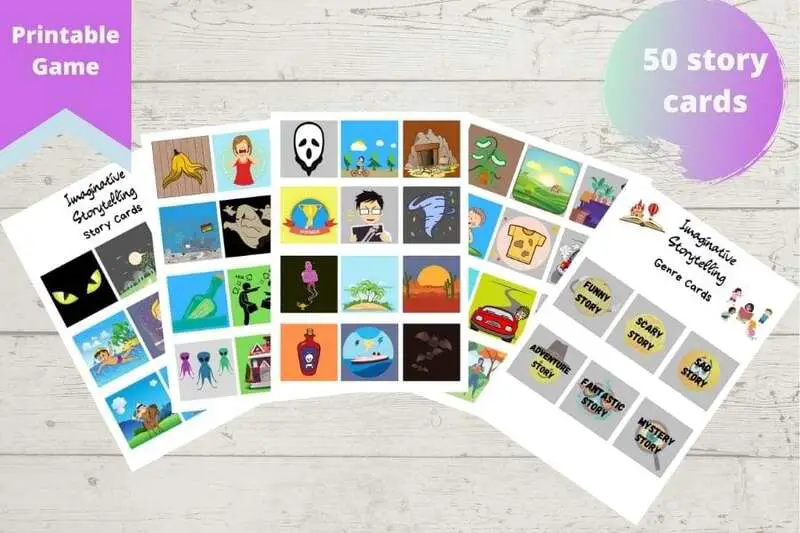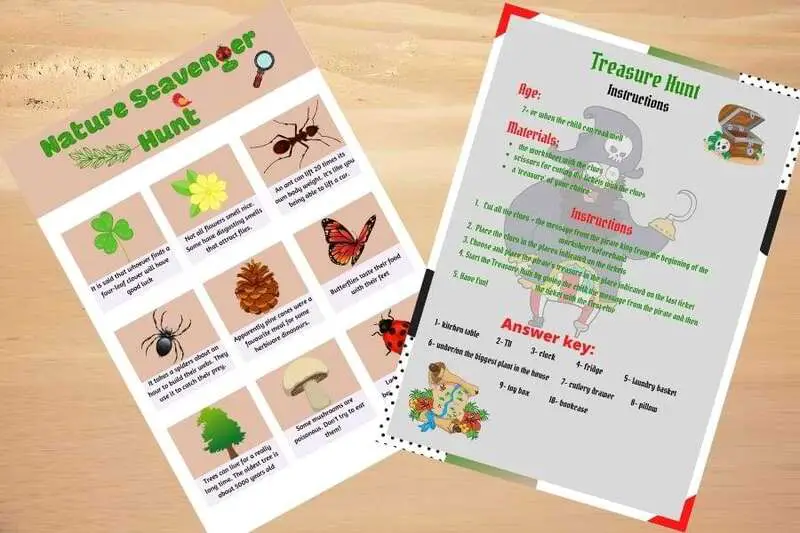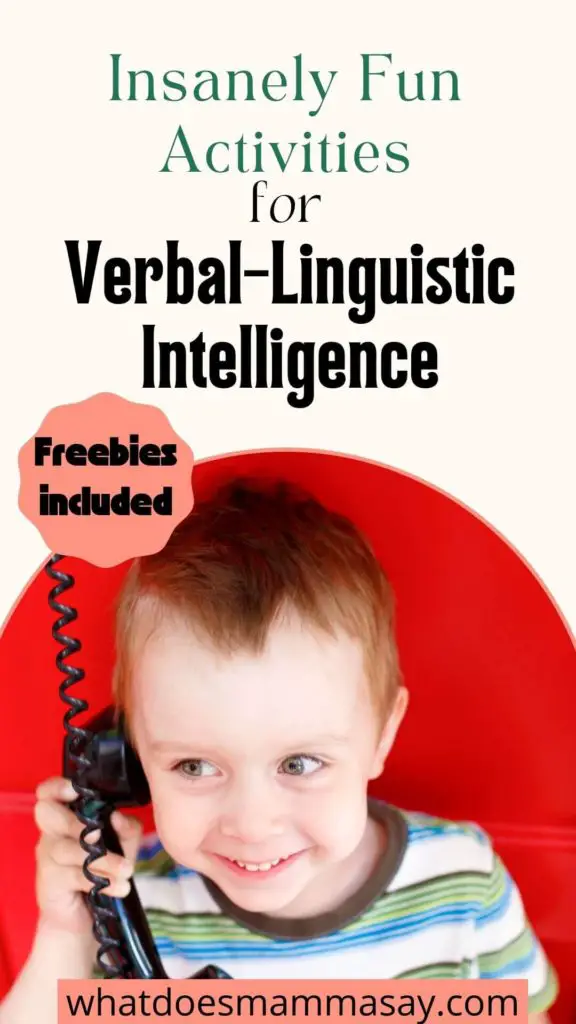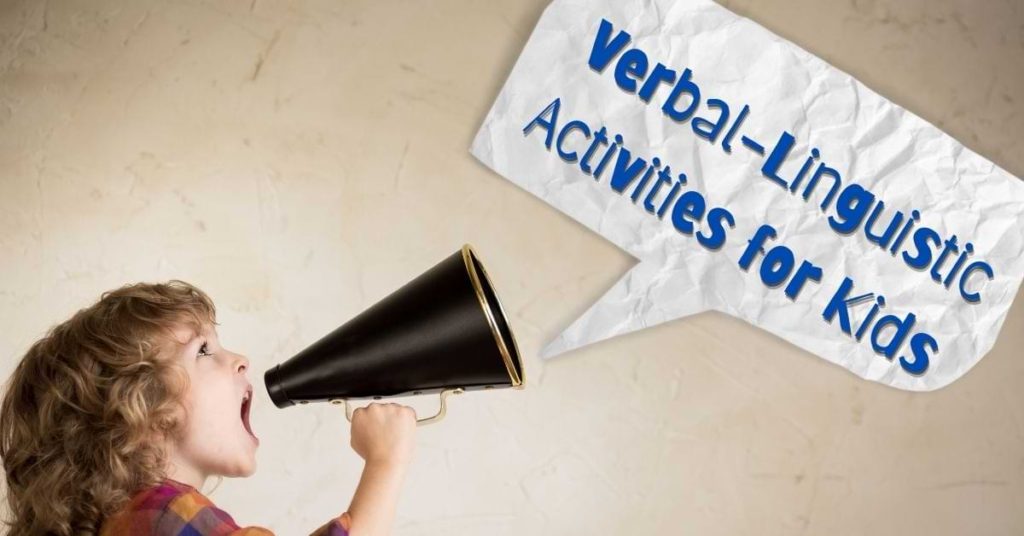“Words are singularly the most powerful force available to humanity. We can choose to use this force constructively with words of encouragement, or destructively using words of despair. Words have energy and power with the ability to help, to heal, to hinder, to hurt, to harm, to humiliate and to humble.” Yehuda Berg
Language is what makes us human. It is with the help of this powerful tool that humans have evolved to the point where we are today, it is how societies have been built and destroyed. Simply put, language is a vital part of human connection.
Considering the importance of language, it is no wonder that school curriculums put so much emphasis on the verbal linguistic intelligence. That is not to say that a high verbal linguistic ability is a synonym for intelligence. According to developmental psychologist Howard Gardner, in his most famous work, Frames of Mind: The Theory of Multiple Intelligences, he states that people use 8 different intelligences or abilities to make sense of the world around them. Although a person will use all 8 abilities, he/she will have a preference towards 1 or 2. Thus, a learner may be more comfortable learning through kinesthetic activities or musical activities.
Today we are going to discuss the verbal linguistic intelligence. Through this post, you will discover what linguistic intelligence is, what are some characteristics of a verbal linguistic learner, verbal linguistic activities for kids and other useful information.
Many of the activities presented here are played in a group, however, they can also be adapted for fewer children.
This post may contain affiliate links and I may earn a small commission when you click on the links at no additional cost to you. As an Amazon Affiliate, I earn from qualifying purchases. You can read my full disclosure here.
What is linguistic intelligence?

In a nutshell, verbal linguistic intelligence handles the production of language (from poetry, essays, grammar to tongue twisters and abstract reasoning) and enables people to communicate.
As the name suggests, a verbal linguistic learner has well developed verbal and written skills. People with verbal linguistic intelligence are very articulate, with rich vocabularies, they are able to convey their thoughts and feelings very well using one or more languages.
As I mentioned above, the verbal linguistic ability together with the logical-mathematical intelligence is highly valued in schools since most of the curriculum is taught verbally. So, generally, a verbal linguistic learner tends to do well in school. However, the good news is that nowadays schools are slowly creating curriculums that include the other abilities as well.
What are the characteristics of linguistic intelligence?
Bear in mind that we all poses verbal linguistic intelligence. However, some people have higher levels of linguistic intelligence than others. That is not to say that those who don’t possess strong verbal abilities can’t develop them in time through specific verbal linguistic activities.
But how do you know if your child or student has this type of intelligence?
Generally, verbal linguistic learners tend to:
- Think in words
- Remember information when it’s in written or spoken form
- Love reading and writing
- Enjoy debates and giving speeches
- Play games that involve words like Scrabble, crossword puzzles, hangman etc
- Learn a new language easier
- Have rich vocabularies
- Have the ability to explain things clearly
- Use language creatively through poetry, stories, blogs etc
- Enjoy drama classes
*If you are not sure what type of intelligence your children have, you can give them this simple test that will give you a clue where their strengths lie.
General Activities for verbal linguistic learners
Since the verbal linguistic intelligence stands at the core of our human relationships not to mention that our educational system puts so much emphasis on this ability, it is important to enhance and develop it as much as possible.
Here are some general verbal linguistic activities that you can try with your children:
1. Play word games
(There are so many out there from pen and paper word games like hangman, crossword puzzles, categories to board games like Scrabble, Zingo (great for kindergarten kids), Bananagrams.)
2. Keep a diary
3. Start a blog
4. Create a podcast
5. Join a book club
6. Learn a new language
7. Participate in debates
8. Write new words in a notebook
9. Write stories or poems
10. Search for online or local essay/poetry competitions and submit your work
11. Write articles for the school newspaper
14. Write letters to a penpal
15. Visit the local library
Verbal Linguistic activities in combination with other intelligences
According to Howard Gardner, we use all 8 intelligences in order to learn and make sense of the world. However, each of us has a preference towards one or two abilities which means that some may prefer learning through a combination of verbal-linguistic and auditory intelligence for example or visual-spatial and intrapersonal intelligence.
Considering this, let’s look at some verbal linguistic activities in combination with some of the other intelligences:
1. Verbal linguistic + Bodily-Kinesthetic
- Swat it

This game can be used to teach/revise words, entire sentences or practice grammatical structures. It is quite a versatile game not to mention extremely fun. All you need is some fly swatters (one for each player) and tickets with the target topic.
Put the tickets on the floor or board and have the player(s) ready with their swatters. The teacher or another player will say or describe a word from the tickets and the first child to swat the correct ticket is the winner.
- Paperball fight
Ask the children to write a short story on a piece of paper. After they are done, ask them to crumple the paper into a ball. Next, they will stand up and at your command, they will start a paper ball fight. When the time is up, tell them to pick up a random paper ball (make sure it’s not theirs) and read the story out loud. Optionally, they can try and guess who it belongs to.
- Moving questionnaire
This is a great activity for the kids to get to know each other better or revise certain topics.
Each child has a paper with a list of questions. Of course, it’s up to you what kind of questions they are depending on what you want to teach or revise. For example, if you are talking about WW1, you can have questions like “Between what years did WW1 take place?”, “How did WW1 start?”, “In your opinion, could this war have been avoided? How?”.
Tell the students that you are going to play some music and while they can hear the music they have to walk around/dance. When the music stops, find a partner and ask the questions. After they have the answers to all their questions, invite the children to report their findings to the whole class.
- Lions and tigers
This is a very versatile game so you can use it to practice the alphabet, sight words, do activities involving texts etc.
Divide the whiteboard into two equal sides and divide children into two teams. If there is only one child playing the game, there’s no need to divide the whiteboard.
Because I want this game to involve verbal linguistic intelligence, I will describe the version of this game involving a text.
Print two copies of your target text (one for every half of the board) and cut it so that you end up with several strips of paper, ideally at least one sentence per student. Then use blu-tack to stick the sentences randomly on each side of the board.
On your mark, the first students in line will run to their team’s side of the whiteboard and try to find the beginning sentence. Once they have found it, the next student in line will come to the board and quickly find the next sentence. The game continues until the text has been put back in the correct order and the team that does it first is the winner.
If there is only one child playing the game give him/her a limited time in which to arrange the text.
2. Verbal-linguistic + Auditory Intelligence
- Where are you?
If you want to practice new vocabulary, this is a great game. It may get a tad noisy but it’s worth it as it is so fun. Ideally, it is played with a larger class but it can also be played with fewer children, it will just take less time.
Divide the class into equal groups and assign each group with a different word or sentence. Now comes the fun part: blindfold the students and mix them up.
The purpose of the game is for the teams to reunite as quickly as possible. In order to do so, they will have to shout their team’s word/sentence. Using their sense of hearing, they will have to find their teammates before everyone else.
Because the kids will be blindfolded make sure that you clear the space of any hazards and establish some game rules like no running.
- Guide me to the treasure

Another game that involves a blindfold and using the sense of hearing.
The first step is to choose an object that will be the treasure. Next, divide the children into pairs and blindfold one of them. Put the treasure somewhere in the room.
The child that can see will have to use verbal commands like “move forward three steps”, “turn right and take two big steps”, to guide the blindfolded child to the treasure.
If you are playing this game with more children, the pair that get the treasure first is the winner. If there is only one pair you can set a timer.
- Fill in the gaps
Every time I wanted my kids to practice their listening skills, skimming for information and also asking the right questions I’d play this game.
Prepare a text for the students and divide them into pairs. Although both of the kids have the same text, the gaps in each text are different. Thus, the information that student A needs will be in student B’s text and vice versa. The goal of this exercise is for each child to complete his/her gaps by asking the partner questions.
3. Verbal-linguistic + Visual-Spatial Intelligence

A fun game that involves 50 random images + 6 genre cards. Each player receives a number of cards (they will decide how many) and based on those cards each player will have to come up with a story. The best story wins.
The pack containing all 50 Story cards and the 6 genre cards are free to download.
- Draw what I say
Play this game in pairs. One child (A) has a simple drawing and the other (B) has a blank paper. Child B can’t see the drawing. The idea of the game is for child A to describe his drawing step by step while child B does his/her best to draw it as accurately as possible.
- Treasure hunt

I love treasure hunts and play with my son on every occasion that we have. Besides being fun and exciting games, treasure hunts are great for improving visual-spatial intelligence, verbal-linguistic as well as kinesthetic intelligence.
You can get 2 fantastic treasure hunt games by clicking this link.
4. Verbal-linguistic + Intrapersonal Intelligence
- Crossword puzzles
Intrapersonal learners prefer doing things on their own rather than in a group. So an activity like solving crossword puzzles is a perfect game to improve verbal linguistic intelligence.
- Create a blog
A blog is a great instrument to communicate with the world, share your knowledge and document your experiences. It is also a great way of improving your verbal linguistic intelligence especially if you are an intrapersonal learner.
- Write stories/poems
Generally, a verbal-linguistic person has a way with words. Great writers and poets like Agatha Christie, Maya Angelou, William Shakespeare or Edgar Allan Poe had high linguistic intelligence.
So, a “self-smart” person who is also “word smart” will enjoy creating stories or poems very much not to mention that they will probably be good at it.

Verbal-linguistic + Interpersonal Intelligence
*An Interpersonal learner is very in tune with social situations, they relate with people well and they understand their needs and motivations.
- The salesman
Each player has some random objects (for ex. a pencil, a hair clip, a pack of napkins etc). They will have to present their “merchandise” in a way that the other players will want to buy it. You can also play this game in as little as two players.
Besides being fun, this game also practices the power of persuasion, creativity and refines communication skills.
- Historical figure role play
Kids love dressing up, so why not organize a fun mini-play surrounding a historical figure or event.
This is a great idea for interpersonal learners as they love social gatherings as well as performing, and also the perfect opportunity to develop those verbal-linguistic skills.
- Word chain
A fun game to develop vocabulary that is also perfect for interpersonal intelligence as it requires at least two players.
One player chooses a letter of the alphabet with which the next player will have to say a word. The next player will then have to come up with a word that begins with the last two letters of the previously said word. For example: the chosen letter is M- moon– online– nest- straw etc.
The person who can’t come up with a word is out of the game.
If you want to make the game easier, think of words beginning with the final letter of the previous word.
5. Verbal-linguistic + Logical-Mathematical Intelligence
I remember playing this game as a kid and how much fun it was. Guess Who is a great game for kids to practice their verbal-linguistic abilities by asking questions and for logical-mathematical intelligence by making logical assumptions based on the information given. If you are not familiar with this classic game, you don’t know what you’re missing.
- The Connection game
One player says 3 (apparently) random objects. The other player(s) have to come up with one thing that the 3 objects have in common. For example, comb, scissors, blow-dryer-> the connecting word could be “hairdresser”. Of course, there can be more than one correct answer.
- Math Word problems
A great way to practice both verbal linguistic intelligence and mathematical ability at the same time are Math word problems. Here is a good site that has quite a collection of word problems for grades 1 to 6.
6. Verbal-Linguistic + Naturalistic Intelligence
- Start a Nature Journal

Kids with naturalist intelligence love observing nature. Thus, a great activity for them would be to start a “Nature Journal” where they write facts and information about different plants and animals that they encounter. They can also take a picture or make a drawing of the plant or animal.
- Write a letter to the local council
No person is too small to make a difference, everyone has a voice that can be used to make an impact. Protecting the environment is something that a person with a naturalist intelligence loves doing. Writing a letter/email to the local council in which you detail a plan on how to reduce garbage in the area, more efficient recycling or how to protect a certain endangered animal is a great way to use verbal linguistic ability as well as the naturalist one.
Final thoughts
Verbal linguistic intelligence is considered a universal ability since most of the population can speak and around 85% can read and write (according to ourworldindata.org). However, some people are born with higher verbal-linguistic ability than others, which means that a verbal linguistic learner may do better in school since most of the evaluation is based on linguistic and mathematical abilities.
Having said this, linguistic intelligence can be developed throughout a person’s life through specific activities (like the ones above) and being exposed as much as possible to reading, writing and socializing.
Developing the verbal linguistic intelliegnce is extremely important in today’s society since the ability to communicate well is a sought-after skill that will influence one’s personal and professional life.
If you found this post useful, please give it a boost by sharing it with your friends 🙂
Before you go, you might also like:
Naturalistic Intelligence Activities for Kids
Emotional Intelligence Activities for Kids
The Best Activities for Logical-Mathematical Intelligence
Musical Intelligence- Activities for Auditory Learners
Activities for Kids with Intrapersonal Intelligence
The Best Activities for Bodily-Kinesthetic Learners
The Best Activities for the Visual-Spatial Learner

Mom of two wonderful children, dedicated teacher and book lover.



I am going to save this for when my son gets older. He’s only 3 but speaks really well and loves to learn new words so I think he would really enjoy this.
I always loved games that helped my kids with vocab and verbal communication. They loved Zingo! Oh my goodness we would play that for hours.
Fantastic post! I love everything you have as suggestions, there is something that will fit a number of different likes and personalities so that you can find what works best for your child.
I love everything you said and will be using some of these activities with my year-old. Fabulous post!
Very informative posts. So many activities to develop and practice verbal communication to kids. My eldest loves to write stories and keeps a journal.
I love all these ways to help your child learn!
I’m loving the game suggestions. Hangman and crossword puzzles were two of my favorites to do as a kid.
The treasure hunt game sounds like a great activity!
This is interesting about how to tailor activities towards kids. These are wonderful ideas!